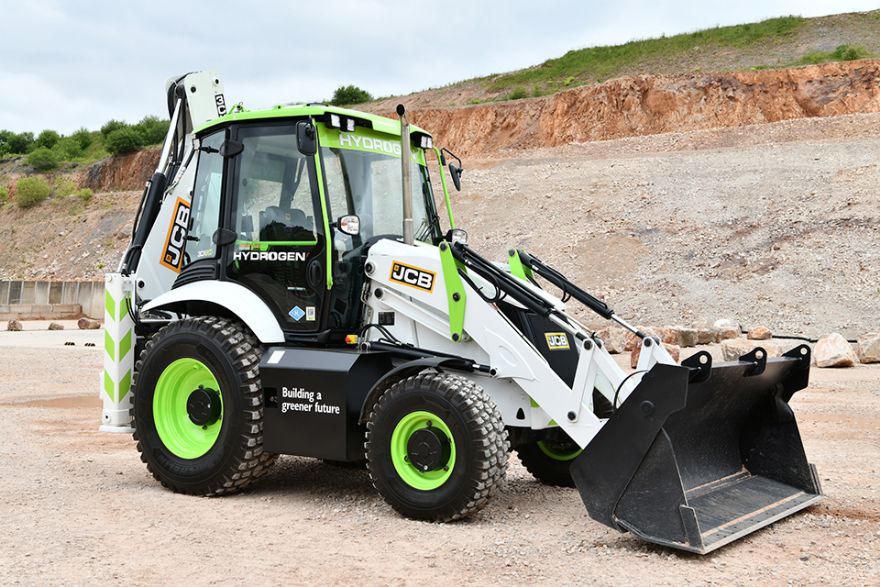
The world’s first digger, powered by a hydrogen combustion engine, will soon be on UK roads and building sites following recent Government approval, helping to decarbonise the UK’s construction industry. The UK Government has given special dispensation, under a vehicle special order, that allows
JCB, the British construction equipment manufacturer, to test and use its world-first hydrogen-powered backhoe loader on UK roads.
This new backhoe loader is the first of its kind and is a pioneering solution to help reduce emissions on construction sites. With 25% of the UK’s total ‘greenhouse’ gas emissions coming from the built environment, JCB says it is vital the entire construction industry looks to decarbonise at every stage.
This not only marks a new direction for reducing emissions but will also help grow the UK economy. JCB has already created 150 new jobs in the Midlands with the promise of hundreds more as the hydrogen project advances. These developments will also help to equip the country with the skills and expertise to not only reduce emissions but provide learning to would-be apprentices, future-proofing the nation’s skillset.
Technology and decarbonisation Minister Jesse Norman said: “From cars to construction sites, industry has a vital role in decarbonising our economy and creating green jobs and prosperity. JCB’s investment in ‘greener’ equipment is a great example of how industry can make this happen, using alternative fuels to generate sustainable economic growth.”
JCB’s prototype hydrogen-powered backhoe loader is an important first step in the construction industry’s efforts to decarbonise in what is a ‘hard to decarbonise’ sector. Hydrogen combustion machines can play a vital role in reducing carbon emissions in settings where other types of clean power may not be the most practical or efficient.
JCB chairman Lord Bamford said: “Securing this vehicle special order from the Department for Transport is an important first step in getting JCB machines that are powered by hydrogen combustion engines to and from British building sites using the public highway. It is an endorsement that JCB is on the right path in pursuit of its ‘net zero’ ambitions.
“JCB’s hydrogen-powered backhoe loader is a world first in our industry, a digger with a purpose-engineered internal combustion engine that uses hydrogen gas as the energy source. It is a real breakthrough — a zero CO
2 fuel providing the power to drive the pistons in an internal combustion engine, a technology that’s been around for over 100 years, a technology that we are all familiar with.”
The pace of JCB’s hydrogen developments showcase a level of commitment to decarbonisation that is needed across all sectors of the UK economy. Hydrogen is just one of the many ways that the UK Government is looking to accelerate decarbonisation. The recent announcement of the second phase of the Tees Valley Hydrogen Hub builds on previous commitments to best explore how hydrogen can be used as an alternative fuel, whether that be through the use of hydrogen fuel cells on road or hydrogen internal combustion engines for off-road construction machinery.
The work seen as part of the hub in Tees Valley will work to address challenges such as providing refuelling infrastructure at scale and integrating that within a wider decarbonised energy network.